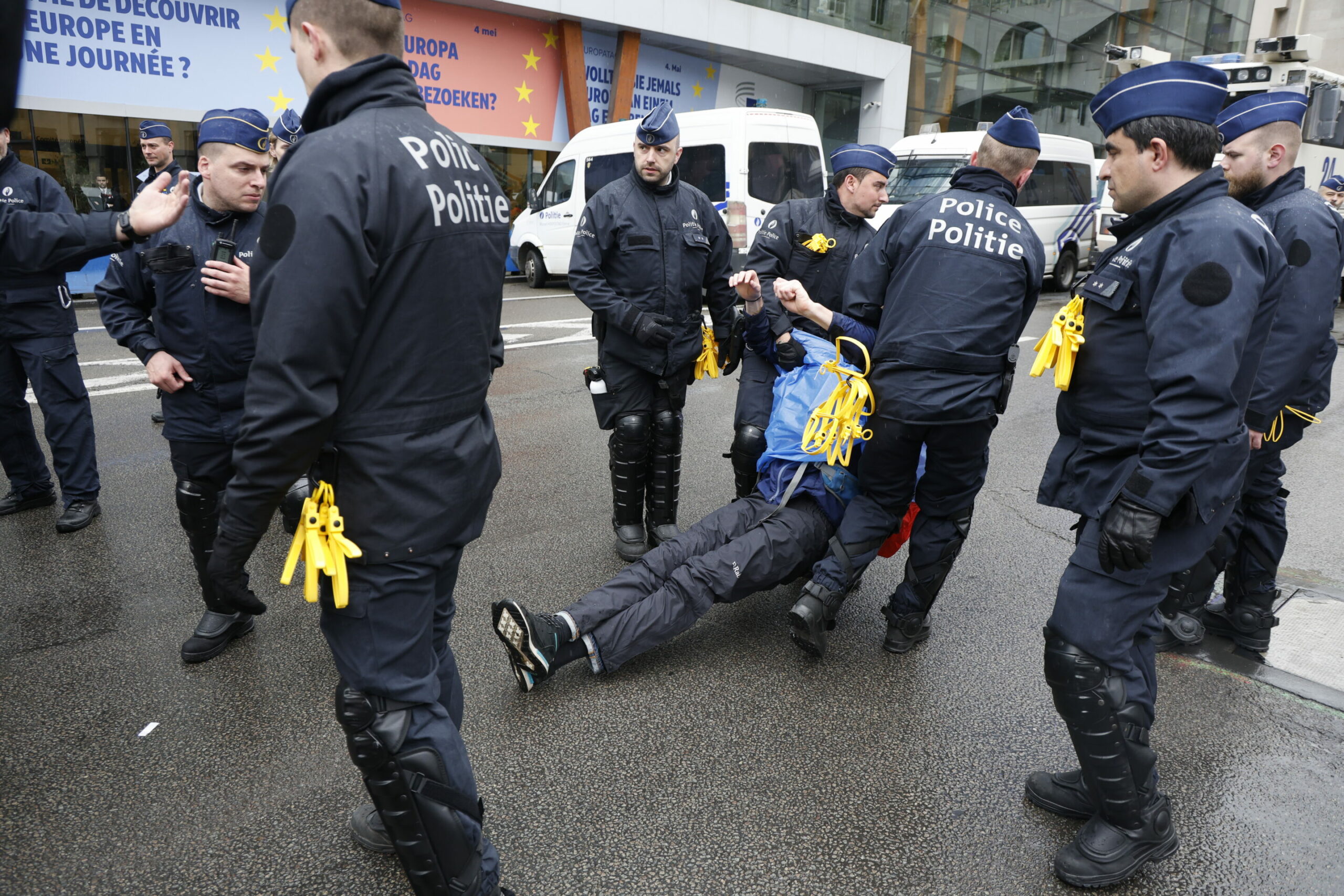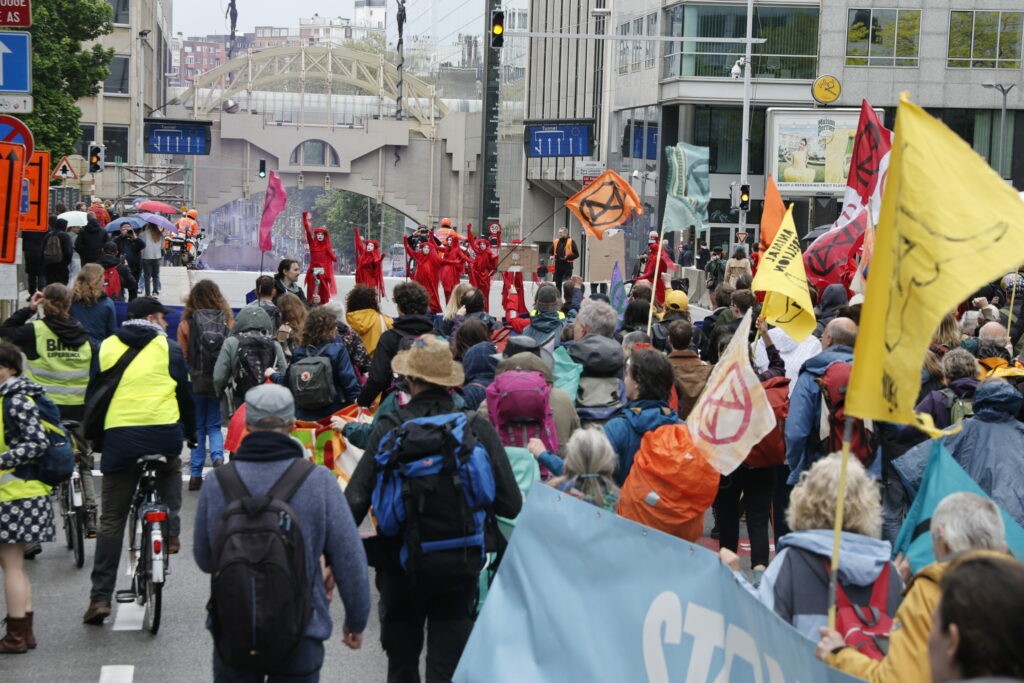Several hundred supporters of environmental group Extinction Rebellion demonstrated on Rue Belliard Street in Brussels on Saturday, disrupting traffic.
Brussels police shut down at 16:00, resulting in the arrest of about sixty activists who refused to vacate the road.
Around 15:30, police officials told the crowd to disperse or face arrest. The majority complied, moving towards Jean Rey Square for another demonstration. However, approximately sixty insurgents decided to remain on site, extending Rue Belliard obstruction by gluing themselves to the tarmac. As a consequence, they were taken into custody.
Extinction Rebellion condemned the police response, accusing it of using "disproportionate violence" in a released statement. "The gathering between Jean Rey Square and Belliard Street during the 'EU Open Days' in the so-called EU quarter led to an unprecedented reaction from the Belgian police forces," the organisation added.

Police take away protestors on Rue Belliard. Credit: Belga / Nicolas Maeterlinck
According to the statement, police used water cannons and deployed numerous officers in riot gear, surrounding the peaceful protesters. This also resulted in bystanders stranded between them and those leaving the Committee of the Regions. "At 16:15, the police began to load activists into buses to arrest them," the organisation said.
Extinction Rebellion concluded, expressing alarm over the use of water cannons against peaceful protestors, "We urge the police to show restraint and respect the right to protest peacefully and without violence."
In the protest, climate activists were calling for an end to subsidies for fossil fuels and the implementation of a national emergency plan for climate change. This plan would pave the way for a thriving, fossil fuel-free economy that protects both the most vulnerable and the ecosystem, the protestors said.
"National and European governments are spending at least €405 billion each year subsidising major fossil fuel corporations," revealed protest spokesperson Bertina Maes. "That's ten times more than what's spent on climate policy."

Credit: Belga
In 2020 alone, she noted that the Belgian Government dished out between €12.9 billion and €20 billion in fossil fuel subsidies. "These direct subsidies amounted to 2.4% of Belgium's gross domestic product (GDP)," Maes disclosed.
Bringing a scientific perspective to the protest, Maes also referred to a recent study forecasting a billion deaths from the climate crisis if global warming of 2°C is not prevented. She decried: "The fact that national governments are subsidising fossil fuels is akin to a crime against humanity."

